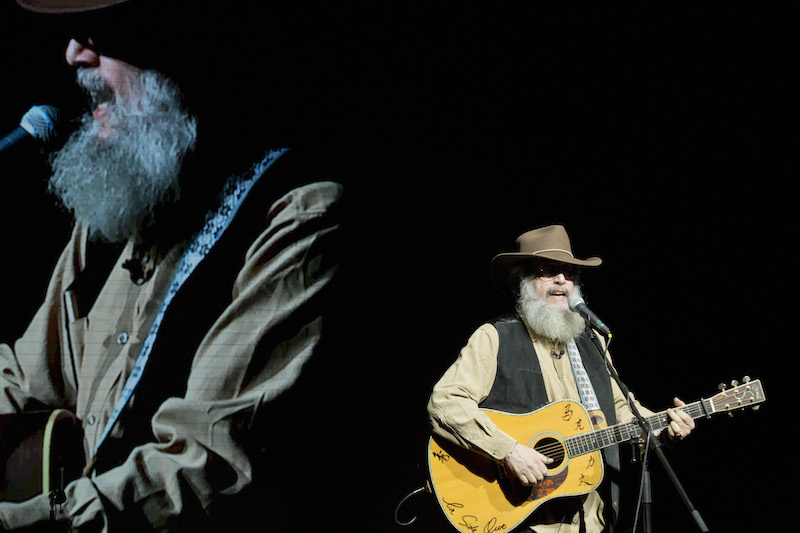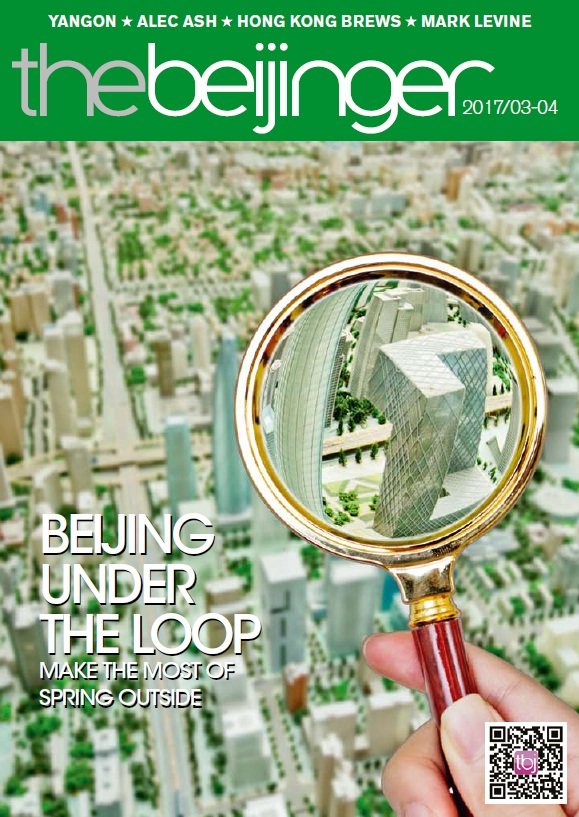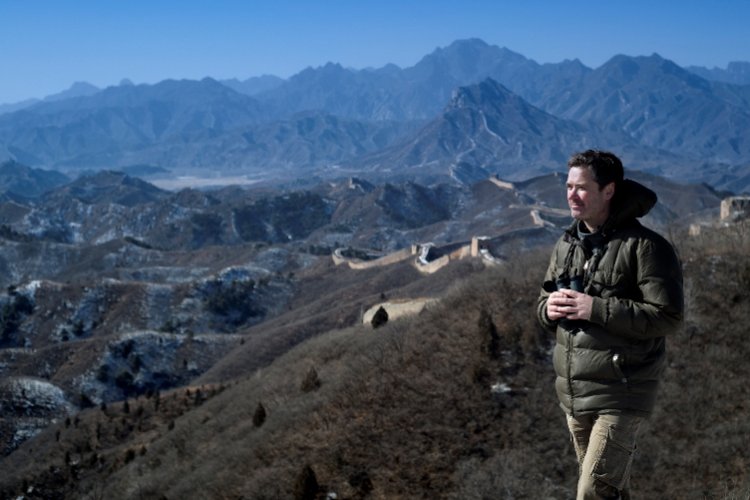Old China Hand: Talking With Expat Troubadour Mark Levine Ahead of His April 8 Performance at The Bookworm
Mark Levine has played at massive festivals for audiences of thousands, shot music videos atop the Great Wall, as well as received the Friendship Award from Chinese dignitaries, the highest honor that the government can bestow on a foreigner.
But aside from such numerous prestigious moments since his arrival in 2005, the 69-year-old California born songwriter, performer, teacher, and sociologist was also deeply fulfilled by far humbler milestones, such as one gig at a construction site in Anhui, where he strummed his guitar and sang for migrant workers.
Playing for China’s marginalized echoed the years he spent prior to embarking for the Mainland, when he worked Stateside in the labor movement helping farmers join unions. And it also overlaps with his reasons for staying in China for over a decade. Before his musical career began, the sociology doctoral came to Jiangsu to teach university students (he now lectures at Minzu University in Beijing). When he tasked the class of 75 to imagine that they were 70 years old, and then write about what they had lived for through the years, one wrote about helping the disabled, two others focused on China’s rural-urban economic gap, while all the others opted for another theme: making a better life for themselves and their families.

“On the one had I can understand that, but I also saw it as a huge societal problem,” Levine recalls. So he decided to stay, lecturing history, philosophy and, more importantly: “Teaching students here how to have a broader view of the world than just ‘Me and myself.’ That made me want to stay, and a lot of my songs are related to that. And as I engage Chinese people with that topic, it gives me an extraordinary opportunity to learn.”
A lifelong guitar hobbyist, Levine had never penned songs until he delved into those conversations with his new Chinese friends and students, and began mulling over what they had to tell him. Before long he became compelled to share that music and asked his friend, Fu Han, to help him. She not only acquired an agent’s licence and began representing him, but also collaborated with him on a bilingual song and story performance for which they play as the duo Inside Out/秀外慧中 (or Xiu Wai Hui Zhong, a play on words in Mandarin that means beautiful on the outside and intelligent, but also wai as in foreigner and zhong as is Chinese).
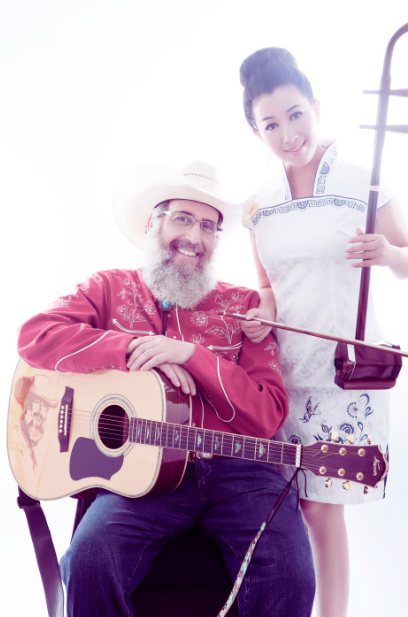
Fu was not only impressed by Levine’s penchant for frank discussion about China’s societal issues, but also his enthusiastic optimism about the country and its culture, which was obvious in his willingness to learn and perform Chinese songs (all the more challenging given he can’t speak Mandarin). She also liked how Levine rebuked what he saw as a slew of biased Western journalism about the Mainland circa the 2008 Olympic Games.
“Everything has a positive and a negative, but Mark chooses to think positive more, and that is smart,” says Fu, adding: “And to think about the positive side, you need to know Chinese culture first. Mark always tries to learn new songs. He is very relaxed on stage when he sings. Sometimes when he sings Chinese songs to the audiences he is afraid to forget the words, but he never does, and when sings in Chinese, audiences are very happy and applaud a lot.”
Inside Out’s unique dynamic quickly helped the duo gain a strong following and lead to performances in front of huge audiences. Levine also went on to have a solid solo career in China, being the only foreign musician out of hundreds to be repeatedly invited back to the massive Intentional Zhangjiajie Country Music week. Its organizers wanted completely new rosters each time the festival was held to maximize the number of foreign performers exposed to Chinese culture, except for Levine, who they invited to return because of his eagerness to guide fellow international performers and answer their questions.
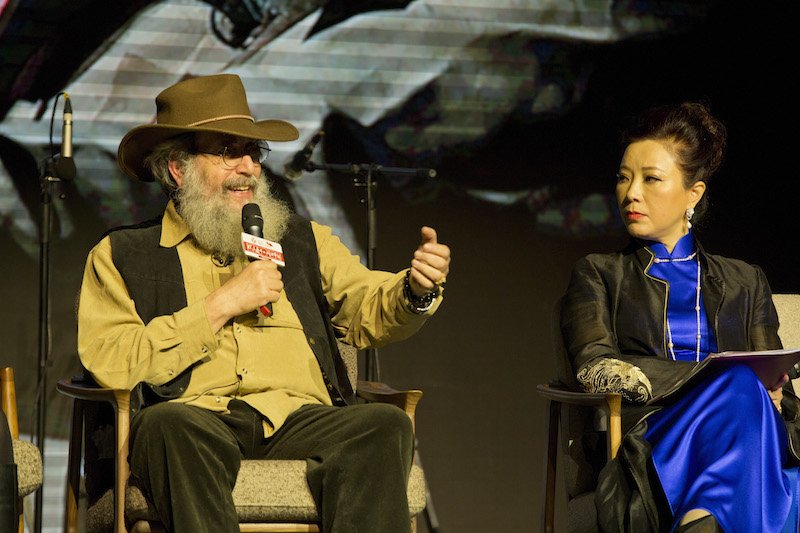
That festival has not been held for several years because of budgetary issues, but during a panel discussion and subsequent acoustic performance at the Tianqiao Theater this past January, Levine told the audience and camera crews that broadcasted the talk on CCTV, BTV and other networks: “That festival needs to be held again and there needs to be support of more and more activities like that, where foreign artists come on such a large scale, interact with Chinese people and learn first hand, and become little ambassadors that go home and tell the stories of what they learned and what they saw.”
Being invited to weigh in on such topics, having the chance to perform for all types of audiences, taking the time to teach promising students, and having the opportunity to make friends like Fu – all of this has left Levine feeling like the luckiest of old China hands.
“I probably never would have been inspired to become a songwriter, and never would have had such amazing opportunities, if I hadn’t come here,” he says. But he says the most glamorous of those moments aren’t his favorites. “When people point out that I’m getting older, and that I should take it easier, I think about being tired and then going into the classroom with my students, and how they give me a burst of energy. So when people ask what I am first and foremost, I tell them that whatever I’m doing –writing, singing, speaking on a panel – I’m always teaching."
You can see Mark Levine and Fu Han perform at The Bookworm on April 8 from 7-9pm. Tickets are RMB 180 at the door, RMB 150 in advance (click here or call 6586 9507). Our event listing for the gig is here.
This article first appeared in the March/April issue of the Beijinger.
More stories by this author here.
Email: kylemullin@truerun.com
Twitter: @MulKyle
WeChat: 13263495040
Photos: Uni You, courtesy of Levine, China Today

